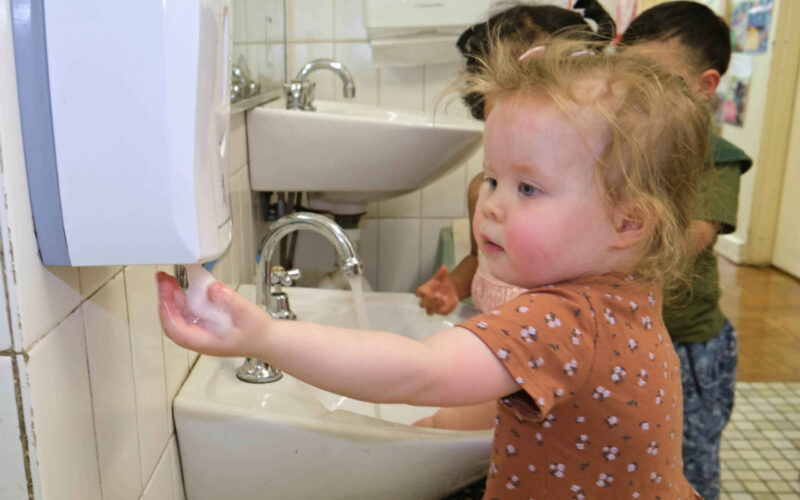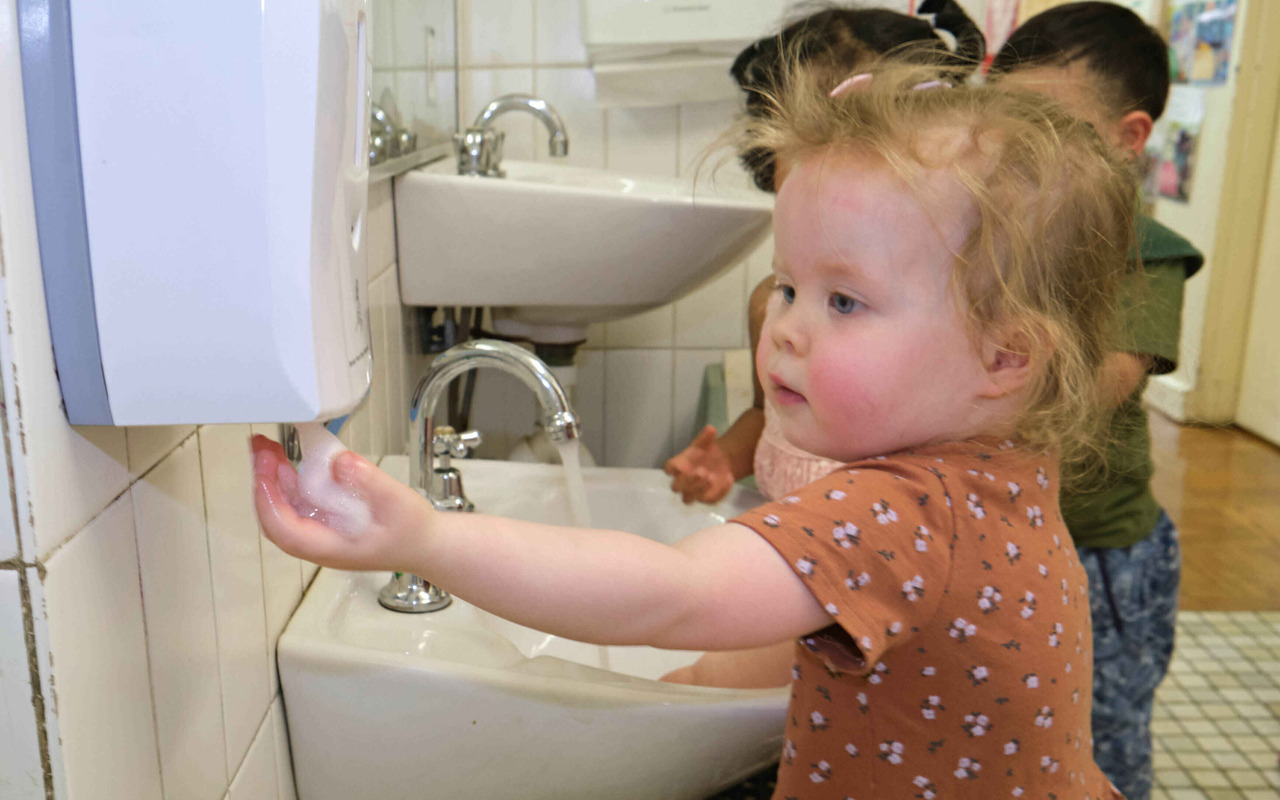

For many families, the seemingly constant cycle of illnesses when they first enrol their child in early childhood education and care can be overwhelming. Apart from it being distressing to see their child feeling unwell, it’s also challenging juggling time away from work with meeting work and other commitments while caring for a sick child. With children potentially contracting between 12 and 20 illnesses each year, parents and carers can understandably feel frustrated.
Why do children get ill so often when they start childcare?
When they start childcare, children are at an age when their immune systems are still developing. Added to this, exposure to other children and adults and shared toys and environments, the risk of picking up germs and viruses soars. This risk increases further in winter, not because of the cold weather but due to the longer periods that children spend indoors, closer to others.
Infections that are easily spread through coughing, sneezing and contact with contaminated surfaces are common in childcare settings. These include:
- Common Cold: Symptoms include runny or blocked nose, sneezing and coughing, watery eyes, headache, sore throat and a possible slight fever.
- Conjunctivitis: Symptoms include red, itchy and watery eyes, a gritty feeling, thick white, yellow or green discharge or clear discharge from the eyes. It may involve one or both eyes.
- Covid-19: Symptoms include fever, cough, sore throat and shortness of breath. Other symptoms include fatigue, loss of taste or smell, congestion or runny nose.
- Gastroenteritis: Symptoms include vomiting, diarrhoea, and stomach cramps.
- Hand, Foot, and Mouth Disease: Symptoms include blisters on various parts of the body, including in the mouth, fingers, palms of hands, buttocks, nappy area, soles of the feet, upper arms or upper legs. The blisters last a little longer than a week.
Minimising the spread of infection
While it is not possible to eradicate the spread of illness in childcare, there are many things that both early childhood education and care services and parents and carers can do to minimise this.
Early childhood education and care services should:
- have health and safety policies and procedures that clearly outline exclusion periods and guidelines for illness in children and staff; immunisation requirements for children and staff; giving children medication; and steps to follow if a child becomes ill in childcare
- ensure that all staff wash and/or sanitise their hands regularly
- follow proper hygiene practices for activities such as nappy changing, toileting, wiping children’s noses, mealtimes and food storage
- ensure that environments, equipment and toys are cleaned regularly and are disinfected if needed
- support children to develop good personal hygiene practices for handwashing, toileting, coughing, sneezing and wiping their noses
- monitor children for signs of illness.
Parents and carers should:
- keep their child at home when they are unwell
- follow their childcare service’s health and safety policies and procedures, including complying with exclusion periods for ill children
- keep their child up to date with recommended vaccinations
- support their child to develop good personal hygiene practices for handwashing, toileting, coughing, sneezing and wiping their noses
- follow and model good hygiene habits themselves, including regular and effective handwashing.
Conclusion
Illness in childcare settings is a common challenge, and many parents may fear that their child will continue to cycle through illness after illness forever! Fortunately, this is not the case. While there will always be some level of illness circulating within group care settings, as children build their immunity the frequency and severity of illness usually reduces. Practicing good hygiene in the centre and at home also helps minimise the spread of infection and helps children to learn how to take an active role in keeping themselves healthy and well.
Contact Us
If you have any questions or would like more information, please email us at childrensservices@theinfantshome.org.au.